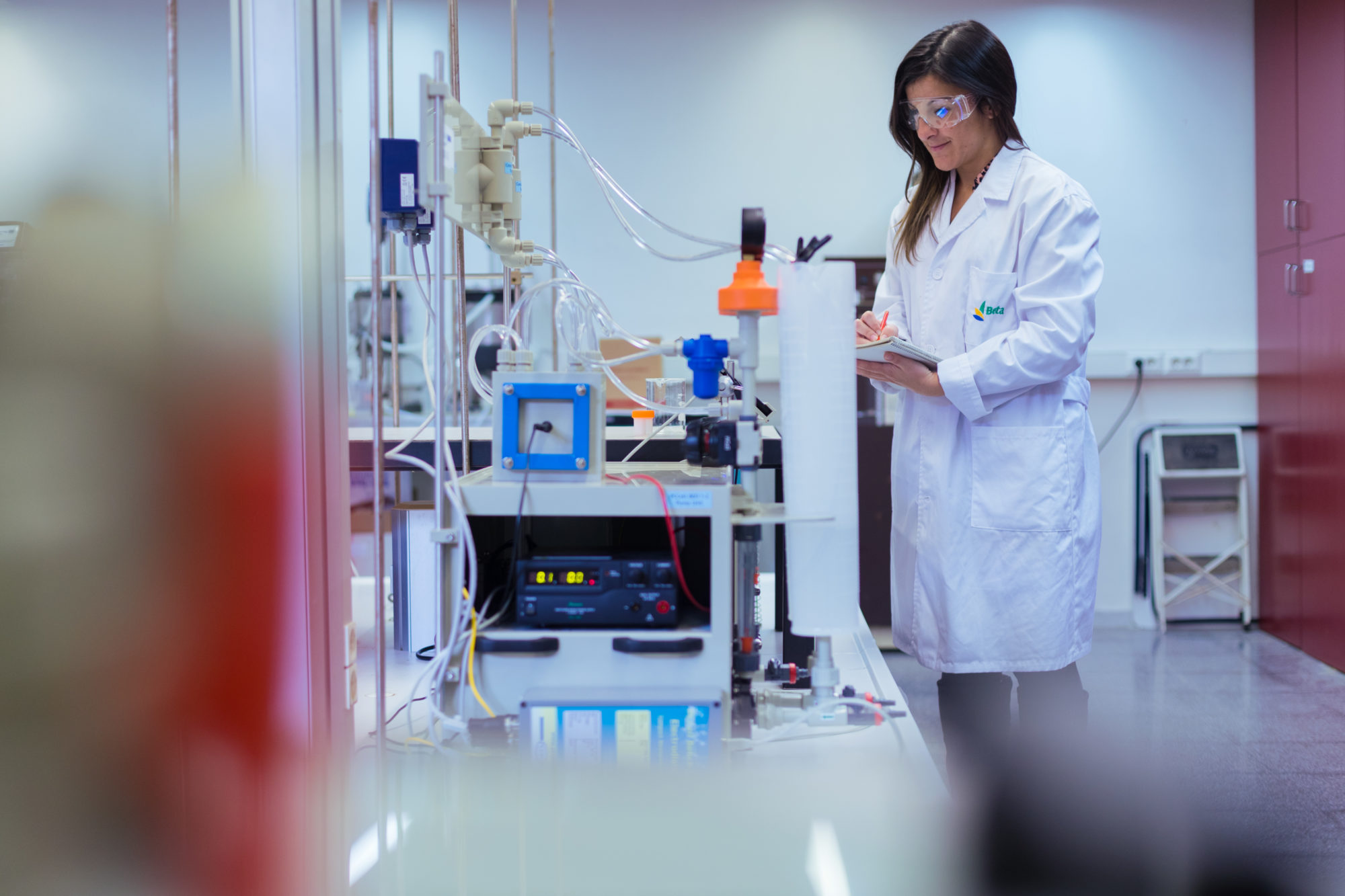Electrodialysis and ozonation would allow the reuse of 70% of the water contained in the manure
Project funded by the Rural Development Program of Catalonia 2014-2020

With the desire to move towards a circular economy model and to a substantial reduction of its water footprint, livestock farms are beginning to face the challenge of recovering and reusing the water contained in manure. The recovery and reuse of this water for agricultural uses or for cleaning tasks of the livestock farms themselves has great potential, while it can be aligned with new solutions to reduce the impact of macronutrients or for optimize the treatment of solid fractions of manure.
In this sense, the application of technologies such as electrodialysis and ozonation would allow a step forward towards the creation of a new model of comprehensive system of recovery of manure, advancing towards the concept of “zero waste”.
The project “Study of the water cycle in pig farms and development of new methods for reuse”, carried out by an Operational Group formed by the company Granges Terragrisa and the BETA Technological Center of the University of Vic – Central University of Catalonia (UVic-UCC), aims to recover the water derived from the treatment of manure through innovative technologies such as electrodialysis and ozonation applied in series. “This system would recover almost 70% of the treated water, reduce the content of nutrients and salts in the effluent and eliminate microbial load,” says Esther Vega, principal investigator of the Task Force and member of the CT BETA.
Reusing the large amount of liquid contained in the manure would help close the water cycle within the farm itself. In addition, the electrodialysis process generates a concentrated product that could potentially be used as a liquid fertilizer. The treatment of the solid fractions obtained during the process would also make it possible to obtain compost suitable for agricultural use.
Operative Group Configuration
The project has had the participation of two members of Granges Terragrisa and four researchers from CT BETA, led by Esther Vega. The CT BETA has been mainly responsible for carrying out the operation and optimization of the pilot plant that has been installed on the farm itself. The plant was designed and built by the Japanese company Fujifilm.
In addition, the ozonation and composting processes have also been carried out in the facilities of the UVic-UCC research center in order to assess the efficiencies of these treatments and evaluate possible end uses of the by-products, both liquids and solids generated in the treatment of water from slurry treatment. The CT BETA has also carried out the study of techno-economic feasibility of the different processes applied throughout the project.
The project “Study of the water cycle in pig farms and development of new methods for reuse” has been funded by the Department of Climate Action, Food and Rural Agenda (DAAC) of the Generalitat de Catalunya through the operation 16.01.01 of the call for the creation of Operational Groups 2018 of the Rural Development Program of Catalonia 2014-2020. These grants are intended to cover the costs of carrying out innovative pilot projects carried out by the Operational Groups of the European Association for Innovation in Agricultural Productivity and Sustainability and are aimed especially at producers or agricultural or forestry companies and communities. of irrigators among others.
